Description
UKU clay paints are 100% natural and produced with solar energy. A variety of high quality clay powders and fillers have been used for a wide range of colors for easy installation and excellent results.
Use
Suitable for painting various interior surfaces (wood, plasterboard, stone, brick, clay, lime, etc., mineral plasters, concrete blocks, Aeroc, Fibo, etc.). It is not suitable for wet rooms (basement, shower), nor for glossy non-absorbent surfaces (glass, metal, etc.).
Colors
White, snow white, orange, mustard, grey, lilac, yellow, red, blue, beige, caramel, green, black. Over 30 different colors in total. In addition, clay paint can be colored with natural pigments, and clay paints can be mixed together to create new shades.
Property
Clay paint is odorless and contains no volatile organic compounds or adhesives and synthetic preservatives. Clay paint does not interfere with the water vapor retention of the substrate, is easy to install and suitable for interior walls and ceilings. The surfaces covered with clay colors are matte, pastel and do not reflect light. Clay paint has good coverage and adds personality to smooth surfaces, leaving a light texture on the surface. The clay color inhibits mold and is suitable for allergy sufferers.
Substrate
The substrate must be dry, absorbent and free of dust, paint (acrylic, oil, etc. smooth, shiny non-absorbent paint) and lubricants (oils, greases, etc.).
Conditions
The substrate and air temperature must be above 5°C. Small color differences may occur between different batches of the same product due to the small variation of natural raw materials.
Instruments
Clean the container, paint mixer, trowel, brushes, paint rollers, paint sprayer.
Mixing paint
Take a clean container to mix the paint and pour the powder into the container. Gradually add water while mixing until the color becomes a uniform paste without lumps. Clean the sides of the bowl with a trowel, as stirring will cause pooling the paint. Add more water as needed, continuing to mix until you have added all the water marked on the bag. If the color still doesn’t look uniform, let it sit for 15 minutes and mix again. Continue until all the clotted pieces are gone. Let the paint sit for at least 30 minutes before use.
STAINING
Clay paints can be mixed together. When coloring with pigment, dissolve the pigment in a little warm water to a paste-like mass and let it sit. Make sure the pigment is properly dissolved and then mix the pigment paste into the paint. If pigment remains on the edges of the container, clean the edges. Let the mixed paint sit for 30 minutes and mix well again.
Installation
Highly absorbent substrates (clay and lime plasters, etc.) must be primed with UKU Primer to ensure uniform adhesion and absorption. For other surfaces, priming is recommended. Apply the paint in two coats to prevent the darker substrate from showing through the paint layer. If the substrate is absorbent, the color of the first layer must be mixed more liquid. For a non-absorbent substrate, the layer of the first coat must be thicker to achieve a better and more uniform coverage. Allow the first coat to dry completely before starting the second. Use the brush to paint in different directions when painting with a brush. Don’t brush too long in one spot when painting, because depending on the substrate, the paint can start to mix with the substrate and change color. When painting with a roller.
Final finish
Clay paint can be primed to increase surface strength.
Consumption
PACKAGE 1kg: 1.4-1.8l, 5-6 m²
PACKAGE 5kg: 7-9l, 25-30 m²
PACKAGE 10kg 14-18l 50-60 m²
Safety
Avoid inhalation of dust and contact with eyes. In case of eye contact, flush with saline solution. Keep out of reach of children.
Preservation
The dry mixture can be stored in a closed package in dry conditions for 2-3 years. Once mixed, store in a lidded bucket, covered with water and in a cool room for 6 months. When using again, pour off excess water and mix well.


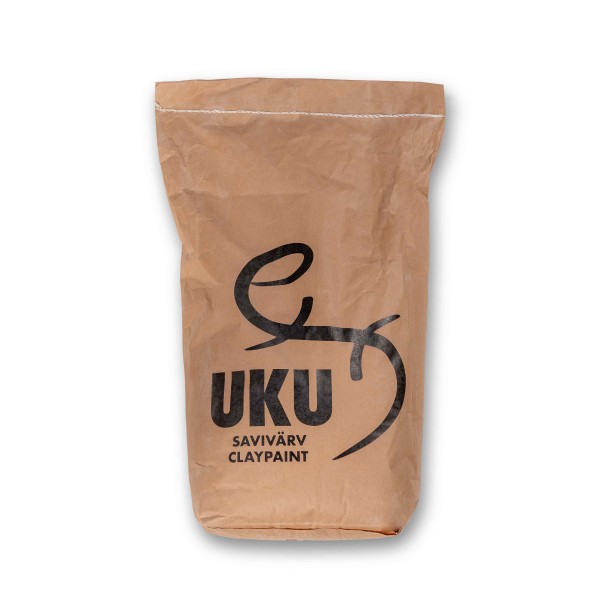



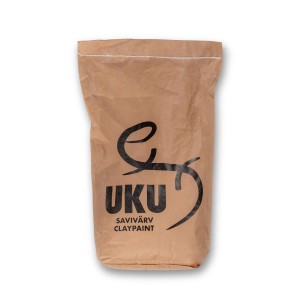
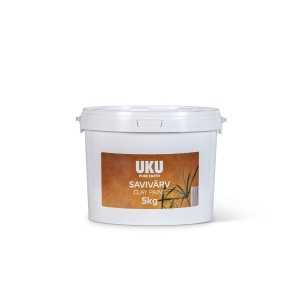
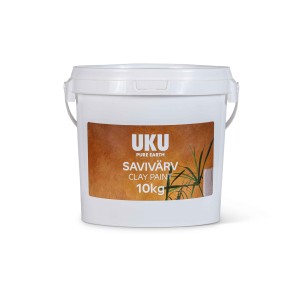
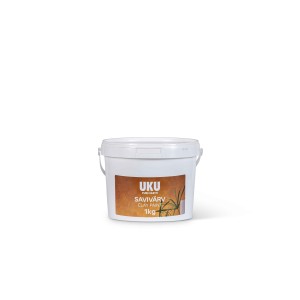
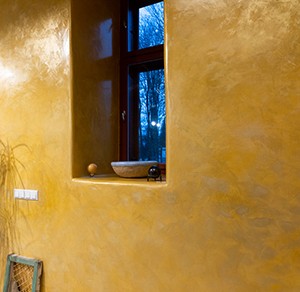
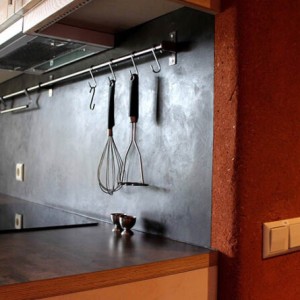
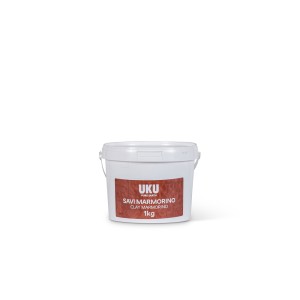
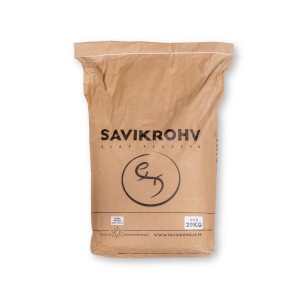




Reviews
There are no reviews yet.